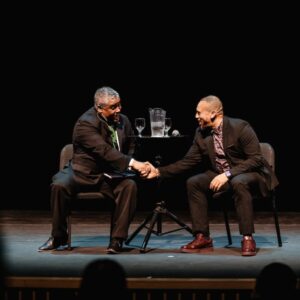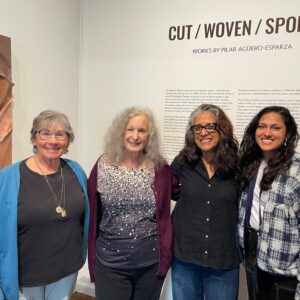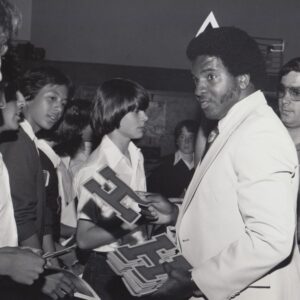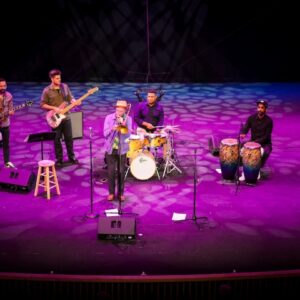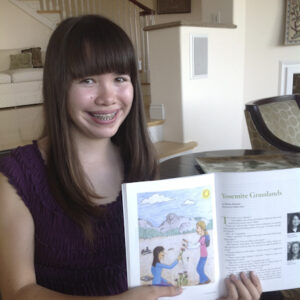This is an excerpt from a feature story printed in the Fall/Winter 2024 issue of Harker Magazine. Read the full story in the digital version of the magazine on Harker’s issuu page, and watch for the print version to arrive during the winter break.
The bus dropped Jonathan Xue at Harker’s upper school around 7:15 a.m. after a long ride, leaving the ninth grader with a quiet campus to explore. The library wasn’t open yet and with time to kill, Xue gravitated to the room of his calculus teacher, Mr. Silk. Xue asked his teacher for a math puzzle to work on.
Thus began a routine. Sometimes, they talked math, other times Xue did homework. Sometimes, they just talked.
Long before he became the upper school’s mathematics department chair, Anthony Silk had the kind of career you might find in a novel – Navy commander, test pilot, cruise ship social host, aerospace engineer, software developer…. And Xue, with many interests, enjoyed discussions about the world around them.
Silk soon realized that they had something in common: a strong sense of honor. Silk, faculty chair of Harker’s Honor Council, valued Xue’s perspective and thought others might benefit as well.
“You care about a lot of things,” Silk told him. “These are the thoughts and perspectives we need on the Honor Council.” A student-elected group independent of the student council, the Honor Council comprises 8-10 students and three faculty representatives. The Council serves as the eyes and ears of the school, establishing behavioral and ethical standards that students live by.
What kind of school do I want to leave behind? For Xue, it was a school that valued academic integrity. Now a senior, Xue has played a role in achieving that.
Silk arrived at Harker in fall 2003 and soon got involved in the Judicial Committee, a student-run panel that heard disciplinary cases at the request of the students and recommended consequences.
Silk felt the council’s goal was not to judge other students, but “to promote honor in the school.”
Kevin Williamson, dean of students, explained that the original Judicial Committee was created as a hearing board for disciplinary referrals from his office. “It served the greater community. [We wanted to have] the kids be involved in the decision-making because it was really about helping students understand right from wrong.” The committee would submit their recommendations to the upper school head, who discovered that kids tended to be harder on their peers than the faculty would have been. The name was changed to Honor Council in 2008, and in the next few years the focus shifted to outreach and policy recommendations, with a diminished disciplinary role. Today they will only hear minor cases, if the student requests it, or if Williamson feels it would be helpful to consult with them.



